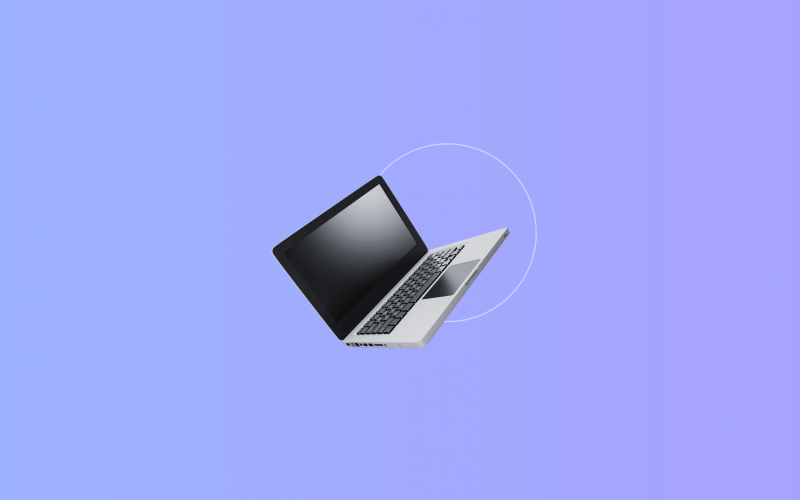Are you an ecommerce or subscription-based business owner or manager struggling to find a robust financial management solution? You must have come across options like accounting software and ERP (Enterprise Resource Planning) software.
The accounting software market stands at $14.67 billion whereas the ERP market is standing at an impressive $71.41 billion value. While both options are primarily automation solutions for financial management, each has a different scope and functionality. No wonder more than 70% of large organizations are using ERP software while 64.4% of small businesses are using stand-alone accounting software.
Want to evaluate ERP vs. accounting software and understand which one’s better for your unique business needs? Read along for a quick comparison of both options starting with the basics so you can make informed decisions to improve your business processes and efficiency, and support revenue growth.
Contents:
What is ERP software?
Simply put, ERP or Enterprise Resource Planning software is a comprehensive solution that can manage and integrate core business processes across various departments. It’s a unified platform that can enhance how you collaborate across teams, and streamline your accounting processes and operations by providing real-time data access.
Core features, tools, and functionality
ERP systems cover a wide range of functionalities like:
- Financial management: ERP software can offer you a host of financial management features like general ledger, accounts payable, accounts receivable, budgeting, and reporting.
- Inventory management: These can facilitate real-time tracking of your stock levels, demand forecasting, and automated replenishment optimal inventory management.
- Human resources management: ERP modules offer tools for employee management, payroll processing, and compliance tracking.
- Supply chain management: Tools for streamlining procurement processes and logistics.
- Reporting and analytics: They encompass advanced data analysis tools for informed decision-making and project management.
Since ERP software combines various functionalities in one single solution, research shows it can improve organizational efficiency by 30%.
What is accounting software?
Accounting software are the ones that primarily focus on managing financial transactions and reporting. These are simple cloud-based solutions that facilitate bookkeeping-related processes, allowing you to record, organize, analyze, and report your business’s financial information efficiently.
Core features, tools, and functionality
Here’s what the key features of accounting software include:
- General ledger (GL): It’s a comprehensive record that captures all the financial transactions of a business serving as a repository for your financial transactions.
- Accounts payable (AP): A system that records and manages the money any business owes to its suppliers which can help you track the money you owe to suppliers and ensure timely payments.
- Accounts receivable (AR): A feature that deals with customer invoices and payments that can help you manage your business’s incoming cash flow.
- Bank reconciliation: This refers to a process where your company’s internal financial records are compared to bank statements for accuracy, helping you identify any discrepancies in time.
- Financial reporting: All the tools and features that help in generating vital finance documents like cash flow statements and balance sheets for easy tax compliance and financial analysis.
Having a simple nature and functionalities, popular accounting software options like QuickBooks and Xero are widely used due to their friendly user interface and ease of use.
How are ERP and accounting software different?
Now that you know what enterprise reporting software and accounting software is, do you feel torn between which one’s best for your business? Here’s a closer look at the key differences that can impact your operations:
Scope of functionality
ERP systems offer a wide range of functionalities that extend beyond finance. They integrate modules for inventory management, human resources, and customer relationship management (CRM), allowing you to manage various aspects of your business from a single platform. For example, with an ERP like Oracle NetSuite, when a sale occurs, inventory levels are automatically updated in real-time. This is best for healthcare providers, manufacturing companies and large-scale retailers.
In contrast, accounting software focuses primarily on financial tasks, such as tracking income and expenses. While tools like QuickBooks can help you manage your finances, they lack comprehensive features for inventory or HR management. Regardless, these can work well for small service-based businesses, non-profit organizations, and ecommerce startups.
Integration capabilities
One of the major advantages of ERP systems is their ability to integrate multiple departments into a single platform. This seamless data flow means that all your business functions can communicate effectively, providing you with real-time updates across the board. For instance, if a customer makes a purchase, the ERP system instantly updates inventory and financial records without any manual input.
On the other hand, traditional accounting software often operates in isolation and may require third-party integrations to connect with other systems.
If you’re running a medium-to-large-sized business with multiple departments that need to manage finance, inventory, supply chain, and customer relations in collaboration with each other, an ERP software is best because of its comprehensive functionality and real-time data integration. Whereas, as a small business or startup new to your niche, if you only want to track your income and expenses and generate basic reports, a simple accounting software is good.
Real-time data access and scalability
With ERP solutions, you gain access to real-time data across all business processes. This capability can allow you to make informed decisions quickly, as you can see everything from sales performance to inventory levels at a glance. Research shows that companies using ERP systems report up to a 25% increase in productivity.
Another great difference is that the ERP software can grow with your business, it’s scalable in nature and design while accounting software has certain scalability limitations making it fit for small businesses only. So, for SaaS companies or retailers planning to expand their operations globally, a software that grows with their business’s expansion like ERP is ideal. For small and local businesses with simpler operations, accounting software is fitting.
Cost considerations
When it comes to costs, implementing an ERP system can be significantly more expensive than accounting software. Typically, ERP implementation costs range from 1% to 3% of your annual sales. For example, if your business generates $5 million in sales, you might spend between $50,000 and $150,000 on an ERP system.
In contrast, accounting software is generally more affordable, with basic packages starting as low as $15 per month. This makes accounting software a more accessible option for small businesses or startups focused on straightforward financial management.
User base
ERP systems are designed for use across various departments and by multiple users within your organization. This means that employees from finance, HR, operations, and sales can all access relevant modules within the same system. For instance, project managers can view budget reports while collaborating with finance teams on project costs.
Accounting software is primarily used by finance teams or accountants. While anyone can handle basic tasks in tools like QuickBooks, deeper functionalities often require specialized training.
Final thoughts: What’s better for your business in current times?
All in all, deciding between ERP and accounting software really comes down to your business’s size, complexity, and growth plans. If you’re running a growing ecommerce or subscription-based business with diverse needs, an ERP system will be best for its scalability and comprehensive features. On the other hand, if your operations are simpler and mainly focused on finances, accounting software could be sufficient for now.
If you’re leaning towards accounting automation, use solutions like Synder. It’ll seamlessly connect all your sales channels, helping you record, reconcile, and recognize ecommerce sales while ensuring tax compliance. With real-time data at your fingertips, Synder is a valuable tool for both accounting professionals and business owners who want to boost efficiency. The best part? It offers integration options with popular platforms like QuickBooks, Xero, Sage Intacct, Stripe, PayPal, Amazon, Shopify, and more.
Book a demo today and experience the benefits!






